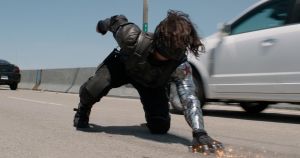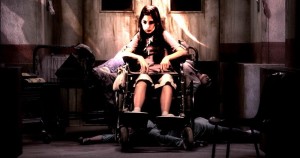
(Not) Engaging with Disability: Convenient Approaches in SFF
Magic and technology often minimize disability in SF/F. How can authors meaningfully engage with disability and the ways that speculative elements can affect disabled characters?

Magic and technology often minimize disability in SF/F. How can authors meaningfully engage with disability and the ways that speculative elements can affect disabled characters?

We sat down with NYT bestselling author Leigh Bardugo to talk about her most recent series, its depiction of disability, and more!

Six of Crows portrays disability with incredible nuance; it’s realistic, respectful, and perfectly integrated into the characters and story.

Speculative fiction is work that focuses on difference, work that immerses us in it. But the choices we make when building a fictional world can reflect on the world that we live in now. So how do we worldbuild with disability in mind?

Our reviewers interview author and Disability in Kidlit editor Corinne Duyvis about disability tropes, survival in the apocalypse, and writerly research.

An emotionally wrenching book, but a worthy one, and one that treats its autistic protagonist with every bit of the realism and respect that she deserves.

I highly recommend this book to readers with disabilities who enjoy fantasy, particularly amputees. It’s great to see one of our own portrayed authentically and centered as a main character in an exciting adventure.

When we talk about disability and sci-fi/fantasy, the first thing many will think of is the magical disability trope. But what does this trope entail and imply? And how can you subvert it?

This series is a fascinating look at how a writer can acknowledge the “magical cure” trope and improve on the portrayal in later books.

I related to Mahlia’s struggle with the harsh words hurled at her because of her limb deficiency—sometimes wanting to prove herself and sometimes wanting to keep her distance.